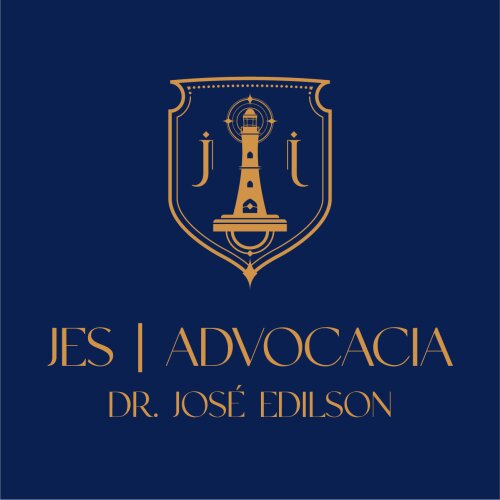Best Collaborative Law Lawyers in Santo Andre
Share your needs with us, get contacted by law firms.
Free. Takes 2 min.
Free Guide to Hiring a Family Lawyer
List of the best lawyers in Santo Andre, Brazil
About Collaborative Law in Santo Andre, Brazil
Collaborative Law is an alternative dispute resolution method designed to help parties resolve legal issues, particularly in family law, through voluntary cooperation rather than adversarial court proceedings. In Santo Andre, Brazil, Collaborative Law encourages open communication and negotiation, allowing participants to reach mutually beneficial agreements while preserving relationships and maintaining privacy. Local lawyers trained in this multidisciplinary approach work with clients and, when necessary, mental health or financial professionals to craft personalized solutions. Collaborative Law is most commonly used in cases of divorce, child custody, and division of property, standing as a peaceful and cost-effective alternative to litigation.
Why You May Need a Lawyer
Seeking a Collaborative Law lawyer in Santo Andre may be necessary in several situations, primarily when parties wish to resolve matters amicably and avoid entering the traditional court system. Common circumstances include:
- Divorce or separation where both parties prefer a dignified, respectful process
- Negotiating child custody and visitation arrangements that prioritize children's well-being
- Dividing property and assets without drawn-out court disputes
- Addressing spousal or child support issues through constructive discussion
- Managing complex family situations involving inheritance or elder care
- When privacy and confidentiality are important concerns
A Collaborative Law lawyer will assist in guiding negotiations, ensuring each party's interests are protected and that agreements comply with Brazilian law.
Local Laws Overview
In Santo Andre, as elsewhere in Brazil, Collaborative Law is influenced by the principles found in the national legal framework, including the Brazilian Civil Code and guidelines concerning family relationships. While Collaborative Law is not specifically governed by its own legislation, its practice is aligned with the provisions for alternative dispute resolution (ADR) outlined in the Civil Procedure Code. These frameworks support negotiated solutions and recognize formal agreements reached through collaborative processes, provided they are legally sound and respect the rights of all parties involved.
Key aspects of local law that shape Collaborative Law practice include:
- Enforceability of private agreements, so long as they do not contravene statutory mandates
- The ability to submit collaborative agreements for court approval, granting them the legal effect of judicial decisions
- Requirements for full disclosure of relevant information by all parties
- Legal standards for child custody and asset division, which must be adhered to even in collaborative resolutions
- Opportunities for mediation or conciliation, closely related to collaborative processes, within local family courts
Frequently Asked Questions
What is Collaborative Law?
Collaborative Law is a voluntary process where parties work together with the help of specially trained lawyers and other professionals to resolve legal disputes without going to court.
In what situations can I use Collaborative Law?
Collaborative Law is most often used in family law cases such as divorce, child custody, spousal support, and division of property, but it can be applied in other disputes where a cooperative approach is possible.
Are Collaborative Law agreements legally binding in Santo Andre, Brazil?
Yes, agreements reached through Collaborative Law can be submitted to the courts for approval. Once homologated by a judge, they have the same legal force as court judgments.
Do both parties need to agree to Collaborative Law?
Yes. Collaborative Law is only possible if all participants voluntarily agree to cooperate and commit to resolving their case outside of traditional litigation.
How does Collaborative Law differ from mediation?
In Collaborative Law, each party has their own lawyer advocating for them, while in mediation, a neutral third party assists negotiations. Both aim for amicable resolutions.
What happens if the collaborative process fails?
If the process breaks down, the collaborative lawyers must withdraw from the case. The parties would then need to find new representation for court proceedings.
How long does the Collaborative Law process take?
The timeline varies, but collaborative cases typically resolve more quickly than traditional litigation due to the cooperative approach and absence of court delays.
Will my information remain confidential?
Yes, confidentiality is a core principle of Collaborative Law. Discussions and shared documents are protected, except in cases of legal requirements for disclosure.
Is Collaborative Law more expensive than going to court?
Generally, Collaborative Law is more cost-effective than litigation because it avoids lengthy court proceedings and minimizes adversarial conflict.
How do I find a Collaborative Law lawyer in Santo Andre?
You can consult the local chapter of the Brazilian Bar Association (OAB) or seek referrals from trusted legal professionals experienced in collaborative practice.
Additional Resources
Several resources can assist those interested in Collaborative Law in Santo Andre:
- OAB Santo Andre (Ordem dos Advogados do Brasil - Seccional Santo Andre): Offers a directory of qualified lawyers and information about alternative dispute resolution.
- Centro Judiciário de Solução de Conflitos e Cidadania (CEJUSC) Santo Andre: Provides organizational support for consensual dispute resolution, including collaborative processes.
- Associação Brasileira de Praticantes de Colaboração (ABPC): Promotes Collaborative Law principles and can help locate trained professionals.
- Family Court of Santo Andre: Offers guidance on how collaborative agreements are recognized and enforced through the judiciary.
Next Steps
If you are considering Collaborative Law to resolve a legal matter in Santo Andre, start by:
- Evaluating whether all parties are open to a cooperative and non-adversarial process
- Contacting a lawyer trained in Collaborative Law to discuss your case and the process involved
- Preparing relevant documents and a clear outline of your goals for resolution
- Attending an initial consultation to understand your options and the likely outcomes
- Discussing the potential inclusion of other professionals, such as financial or mental health experts, if necessary
A legal professional with experience in Collaborative Law will guide you through each phase, ensuring your interests are represented and the final agreement is fair and enforceable. Collaboration can make a significant difference in preserving relationships and achieving satisfactory results for all involved.
Lawzana helps you find the best lawyers and law firms in Santo Andre through a curated and pre-screened list of qualified legal professionals. Our platform offers rankings and detailed profiles of attorneys and law firms, allowing you to compare based on practice areas, including Collaborative Law, experience, and client feedback.
Each profile includes a description of the firm's areas of practice, client reviews, team members and partners, year of establishment, spoken languages, office locations, contact information, social media presence, and any published articles or resources. Most firms on our platform speak English and are experienced in both local and international legal matters.
Get a quote from top-rated law firms in Santo Andre, Brazil — quickly, securely, and without unnecessary hassle.
Disclaimer:
The information provided on this page is for general informational purposes only and does not constitute legal advice. While we strive to ensure the accuracy and relevance of the content, legal information may change over time, and interpretations of the law can vary. You should always consult with a qualified legal professional for advice specific to your situation.
We disclaim all liability for actions taken or not taken based on the content of this page. If you believe any information is incorrect or outdated, please contact us, and we will review and update it where appropriate.














